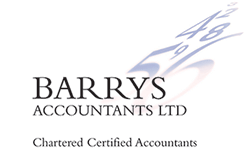Important tax announcements from Spring Statement
The Spring Statement isn’t traditionally associated with significant tax changes, but there were some very important highlights from the 2022 version. What are the key points?

Income tax and NI
It was rumoured that the Chancellor would increase the threshold at which NI contributions are paid, and he didn’t disappoint. The government had already pledged to increase the NI threshold to the level of the tax personal allowance (£12,570) by the end of the current parliament. This has been fast tracked to take place in 2022/23 for both Primary Class 1 and Class 4 NI. The increased rates for the year, and the Health and Social Care Levy were not abolished.
However, the change will not take effect until July 2022. The Factsheet accompanying the announcement makes clear that the first 13 weeks of the year will use the existing weekly and monthly thresholds, with the increase coming in July. It will not apply retrospectively. This means directors using an annual pay period will have a Primary Class 1 allowance of £11,908. This amount will also apply for 2022/23 for the self-employed Class 4 threshold. The threshold for paying Class 2 NI has been aligned with the Lower Profits Limit, i.e. £11.908 for 2022/23. Where their profits fall below this, but above the Small Profits Threshold (£6,725), no contributions will be paid, but a notional credit will be given toward the State Pension entitlement.
Example. Maurice is a basic rate taxpayer, and is paid weekly. Under the initial NI thresholds for 2022/23, he will pay 13.25% on his weekly wage that exceeds £190. From July 2022, this threshold will increase to £242, meaning Maurice will keep an extra (13.25% x £242-190) = £6.89 per week, equivalent to almost £360 per year.
Employers will benefit too, as the Employment Allowance that offsets Secondary Class 1 NI will increase from £4,000 to £5,000 for 2022/23.
The income tax basic rate will fall to 19% from April 2024.
Other measures
VAT on certain energy saving equipment has been cut from 5% to 0% for a period of five years. This includes thermal insulation and solar panels, and similar items. Fuel duty was also cut by 5p per litre, effective from 6pm on 23 March 2022. This cut will last for one year, subject to any extension.
Related Topics
-
Sneaky change is a blow for side hustles
With most of the media focused on the headline-grabbing announcements from the Budget, a read of the published small print reveals another change coming in 2029. It’s bad news if you are an employee with a side hustle, but what’s going on?
-
Dodging the 2027 IHT and pension changes
In a little over a year the inheritance tax (IHT) exemption for unused pension savings comes to an end. If you’re married or in a civil partnership, one simple step might save your estate thousands in IHT. What is it?
-
Act now to spread the cost of your tax bill
The deadline for filing your 2024/25 self-assessment tax return and paying the tax you owe is 31 January 2026. However, if you file your tax return early, you may be able to pay through your PAYE code instead. Are you eligible?



 This website uses both its own and third-party cookies to analyze our services and navigation on our website in order to improve its contents (analytical purposes: measure visits and sources of web traffic). The legal basis is the consent of the user, except in the case of basic cookies, which are essential to navigate this website.
This website uses both its own and third-party cookies to analyze our services and navigation on our website in order to improve its contents (analytical purposes: measure visits and sources of web traffic). The legal basis is the consent of the user, except in the case of basic cookies, which are essential to navigate this website.